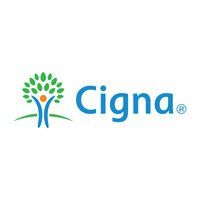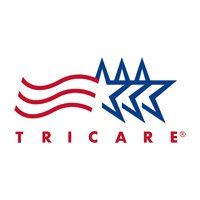Spravato vs. Traditional Antidepressants: What You Need to Know
This is a subtitle for your new post

Living with depression can often feel like you're stuck in a never-ending cycle, with no way out. You may have tried several treatments in the past, hoping that one would finally provide the relief you’ve been desperately searching for. Traditional antidepressants are often the first option people try, but for some, they simply don’t do enough to bring real change. It can be discouraging when medications that worked for others don’t seem to help you, and it might make you feel like you’re running out of options.
That’s the reality for many people with treatment-resistant depression.
If this sounds familiar, you know how hard it is to keep trying medication after medication without any significant improvements. It’s easy to feel frustrated, like you’re doing everything you can but still not seeing the results you need.
But what if there was something different? What if there was a treatment that worked in a completely new way? Now, Spravato can help those who haven’t found relief with traditional antidepressants.
At the North Carolina Institute of Advanced NeuroHealth, with locations in Apex and Fuquay-Varina, NC, we understand how challenging it can be to find the right treatment for depression. In this blog post, we’ll explore the differences between Spravato and traditional antidepressants, including how they work, their effectiveness, side effects, and timelines for improvement, to help you make an informed decision about your treatment options.
What is Spravato?
Spravato is an FDA-approved nasal spray designed specifically for individuals dealing with severe depression that hasn’t responded to traditional antidepressant medications. Unlike most antidepressants, which work by increasing levels of serotonin and norepinephrine, Spravato works through a completely different mechanism. It targets the NMDA receptor in the brain, which plays an important role in mood regulation and brain plasticity.
By enhancing the brain’s ability to form new connections, Spravato can help reset the brain’s circuitry, offering faster and potentially more effective relief from depression. It's typically prescribed when other treatments have failed, especially for those with treatment-resistant depression.
This treatment is administered in a clinical setting, where patients are monitored for safety, as some side effects can occur. It’s a promising option for people who have tried multiple antidepressants without finding relief.
Traditional Antidepressants: How Do They Work?
Traditional antidepressants are commonly prescribed to help people with moderate to severe depression. These medications, which include Selective Serotonin Reuptake Inhibitors (SSRIs), Serotonin-Norepinephrine Reuptake Inhibitors (SNRIs), and Tricyclic Antidepressants (TCAs), work by balancing neurotransmitters like serotonin and norepinephrine in the brain. These chemicals are crucial for regulating mood, emotions, and behavior.
SSRIs (e.g., Prozac, Zoloft) increase serotonin levels in the brain by preventing its reuptake, allowing more serotonin to remain in the brain for a longer period.
SNRIs (e.g., Cymbalta, Effexor) work similarly but also increase norepinephrine levels, another neurotransmitter involved in mood regulation.
While traditional antidepressants can be effective for many, they often take several weeks to begin working, and patients may need to try different medications to find the right one. The process can be long and frustrating, especially for individuals with severe or treatment-resistant depression.
Effectiveness: How Do Spravato and Traditional Antidepressants Compare?
One of the most noticeable differences between Spravato and traditional antidepressants is how
quickly they begin to work. For those using traditional antidepressants, it can take anywhere from 4 to 6 weeks before they begin to feel any relief. This delayed response can be discouraging for people struggling with severe depression who need faster results.
Spravato, however, has a much quicker onset of action. Many people start to notice improvements within just a few hours or days of their first treatment. This makes Spravato a potential game-changer, especially for those with treatment-resistant depression, where traditional medications have often failed to provide lasting relief.
Side Effects: What Should You Know?
Both Spravato and traditional antidepressants come with potential side effects, though the types and severity can vary.
Spravato Side Effects
Dissociation: Some people may feel disconnected from their thoughts or surroundings. This is one of the most commonly reported side effects, but it typically subsides once the medication wears off.
Sedation: It’s common to feel sleepy or groggy after a treatment session. As a result, Spravato is administered in a clinical setting where patients are monitored for safety.
Nausea and vomiting: These symptoms can occur, especially during the early stages of treatment.
These side effects generally resolve quickly and are not permanent. The benefits of Spravato often outweigh these temporary discomforts, especially for individuals who have struggled with depression for years without finding lasting relief.
Traditional Antidepressant Side Effects
Weight gain: Some antidepressants, particularly older ones like TCAs, can lead to weight gain, which can be frustrating for individuals.
Sexual dysfunction: A common side effect of SSRIs and SNRIs is sexual dysfunction, including reduced libido or difficulty achieving orgasm.
Nausea and insomnia: Many people report digestive issues, nausea, or trouble sleeping when starting antidepressants.
Dry mouth and dizziness: Older medications like TCAs may also cause dry mouth, dizziness, or blurry vision.
Side effects from traditional antidepressants may persist for a longer time compared to Spravato and might require adjustments in dosage or even switching medications.
Timeframes for Improvement: How Long Before You Feel Better?
For those beginning treatment with traditional antidepressants, the road to feeling better can feel long. Most individuals will not experience significant relief until 4 to 6 weeks after starting their medication. This delayed improvement can lead to feelings of frustration, especially for those experiencing severe depression.
Spravato offers a quicker route to improvement. Many patients report feeling better within hours or days of their first session. This makes it particularly useful for those with severe or treatment-resistant depression, providing rapid relief when other options have failed.
Which Treatment Is Right for You?
The decision between Spravato and traditional antidepressants is a highly personal one and depends on your unique situation. For some, traditional antidepressants are a good first step, especially if depression is in its early stages. These medications can offer a steady, long-term solution for managing symptoms and preventing depression from worsening.
However, for those who have struggled with depression for a long time and haven’t found success with traditional medications, Spravato may be the breakthrough treatment they’ve been waiting for. Its rapid onset of action and effectiveness for treatment-resistant depression make it an appealing option.
At the North Carolina Institute of Advanced NeuroHealth, we are committed to helping you find the treatment that’s right for you. Whether you’re exploring Spravato or starting traditional antidepressants, our team is here to offer support, guidance, and compassionate care throughout your mental health journey.
If you’re interested in learning more about Spravato or traditional antidepressants and how they may work for you, reach out to our team at the North Carolina Institute of Advanced NeuroHealth today. Together, we’ll explore your options and develop a treatment plan that helps you feel better and regain control of your life.





















